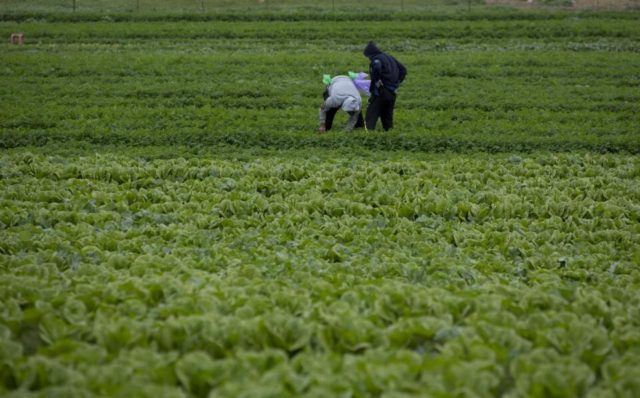Agri NC president said that while the emerging sector could apply for R1.2 billion in agricultural aid, there was no help available for commercial farmers.
Agri Northern Cape has expressed concern regarding the relief measures announced by the Minister of Agriculture, Land Reform and Rural Development, pointing out that no aid was available to commercial agriculture which had already been hard hit by years of drought.
Agriculture Minister, Thoko Didiza, announced on Monday that her department had allocated aid to the amount of R1,2 billion for small-scale farmers (with an annual turnover between R50 000 and R1 million). Women and young farmers, as well as farmers with disabilities, will be prioritised. Only specific commodity sectors will qualify to apply for funding.
Agri Northern Cape President Nicol Jansen pointed out that both nationally-declared disasters had been announced under the same Disaster Management Act and did not provide aid for commercial farmers.
“No aid has been made available to commercial agriculture that must survive drought conditions for years on end. With the covid-19 restrictions, home baking and other entrepreneurial plans to put food on the table and cover medical expenses can also not continue,” he said.
“In all other sectors, small-scale businesses can apply for help.”
He added that while the emerging sector could apply for R1.2 billion in agricultural aid, there was no help available for commercial farmers.
“The emerging sector does not have the numbers to feed the value chain sufficiently to ensure food security. Only commercial agriculture can keep the food shelves full. How is it possible that this is the only sector in the entire economy that cannot apply for any assistance?” he asked, pointing out that this was despite two disasters being declared. “Somewhere, something is wrong.”
The Transvaal Agricultural Union (TLU SA) on Tuesday also expressed its displeasure that the government “continually disregards commercial farmers when offering financial aid”.
“It is deplorable that commercial farmers get the short end of the stick again,” Louis Meintjes, the president of TLU SA, stated.
“Despite the vital role they play in producing food – in so doing preventing food shortages and subsequent anarchy. How must we motivate the commercial farmer to continue with vital production despite the risk of exposure to the coronavirus, when the government never assists them in any manner?”
He pointed out that around 70% of South Africans were urbanised and dependent on commercial farmers to produce food for the nation. According to the latest Agricultural Census, the subsistence farmers who will now benefit from the government assistance, supplies only 1,9% of the country’s food, he said.
“Commercial farmers, the country’s biggest asset, continue to be beset by crime and farm murders during the lockdown period,” Meintjes added. “Our safety patrols are locked down and we have to look to the overburdened SAPS – who do not have the capacity right now – for protection. Yet, the farmers continue with their daily tasks. They deserve better.”
The Department of Agriculture, Land Reform and Rural Development announced on Monday that the department would from Wednesday, 8 April, accept applications from distressed small-scale farmers, who needed financial relief from the impact of Coronavirus (COVID-19).
The details of how funding would work were announced by Didiza during a virtual media briefing.
Applications will close on 22 April and the forms can be accessed on the department’s website www.dalrrd.gov.za and through national, provincial, district and local offices of both the national Department of Agriculture, Land Reform and Rural Development and Provincial Departments of Agriculture. Applications will be lodged electronically at [email protected] or submitted to the offices as outlined. No late applications will be accepted.
Of the R1.2 billion that has been ring-fenced, R400 million has been allocated for farmers within the Proactive Land Acquisition Strategy (PLAS) programme and the remainder will be channelled towards all other farmers that are mainly within the following commodity sectors:
Poultry:
Day-old chicks, point-of-lay chickens, feed, medication and sawdust.
Other livestock:
feed and medication.
Vegetables:
seedlings, fertiliser, pesticides, herbicides and soil correction.
Other commodity sectors will be evaluated on a case-by-case basis, as the department continuously monitors the impact of COVID-19 on the sector at large.
Only South African citizens, who have been actively farming for a minimum of 12 months and currently in the production season or cycle, can apply.
Applicants must also be registered on the Farmer Register, commodity database or provincial database.
The adjudication process will prioritise women (50%), youth (40%) and people with disabilities (6%).
Mechanisation, infrastructure and overhead costs will not be supported.
“This is not comprehensive support but an intervention package amid COVID-19,” Didiza said.
“Farmers who are preparing for the 2020 summer production season will not be supported.
“The aim is to provide immediate to near-term support to smallholder farmers currently affected by COVID-19,” said Didiza.
Farmers who are currently receiving support through other programmes of government and its entities will also not benefit, and there will also be no payment of farmer debts.
Through the Land Bank, Didiza said R100 million has been made available to assist farmers in distress and the bank is available to allow farmers to engage with them to indicate the nature of support they require.








